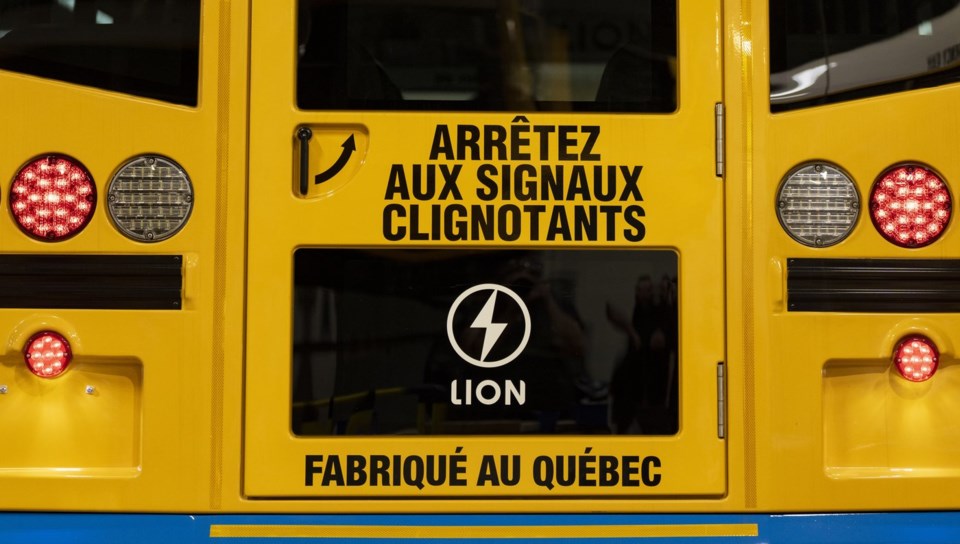SAINT-JÉRÔME — Lion Electric will very likely be liquidated following the Quebec government's refusal to invest more public funds in the company, says the court-appointed monitor for the electric-vehicle maker.
Jean-François Nadon, a restructuring specialist with Deloitte, said in a Superior Court hearing on Monday that government aid would have been a condition of any sale of the struggling company.
With that possibility off the table, he said, it's unlikely any buyer will step forward with a plan to relaunch the St-Jérôme, Que.-based manufacturer, which sought protection from its creditors in December.
"The likelihood of a liquidation of assets is very high," he said.
Nadon said the government's recent announcement that it would not inject any more public money into Lion Electric was a "shock wave" for the company.
News reports last week said a group of buyers was seeking $24 million from the province to relaunch the electric-vehicle maker. Nadon said there was "no indication" before the government's decision that the buyers would be unable to secure that funding.
But Quebec Economy Minister Christine Fréchette announced Wednesday evening in a statement on social media that it would be irresponsible to offer Lion more public money. She later told reporters she "would have expected the private sector to be more involved."
As well, Premier François Legault invoked the return of U.S. President Donald Trump when asked about Lion Electric last week. He suggested Quebec may need to relax its targets for electrifying transportation, since the U.S. "isn't making this a priority."
Quebec has already invested heavily in Lion Electric, and Legault said the province stands to lose about $140 million on the company.
Nadon said he believes the government made its decision because of the "socio-political situation" with the U.S., which he said "limits the expansion of Lion's business plan" and created "extremely significant risks" for the company's outlook.
Late last week, Nadon said, Deloitte began contacting liquidators and auctioneers who had previously been interested in selling off Lion Electric's assets. They were asked to submit offers over the weekend, and Nadon said he hopes to have a deal to present to the court next Monday.
Nadon said Lion laid off all but 12 of its employees after the government announced its decision last week. He said the company is still able to pay its remaining staff, but it was unable to pay rent for all of its locations on May 1, equal to about $400,000.
Lion Electric manufactured electric school buses and trucks, and currently has about 1,175 school buses on the road in Quebec. But the company went through several rounds of layoffs last year and shut down production at a plant in Illinois, before entering creditor protection in December.
A proposed class-action lawsuit filed by Lion Electric shareholders against the company's directors and officers, which claims they misled investors and misrepresented the company's financial health, could proceed once a deal is finalized.
This report by The Canadian Press was first published May 5, 2025.
— By Maura Forrest in Montreal
The Canadian Press



